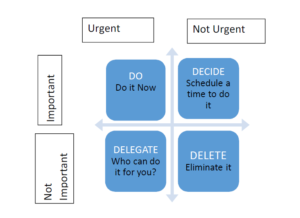“What is important is rarely urgent. What is urgent is rarely important”
–Dwight D. Eisenhower
Effective Decision making more often than not is a product of an interaction between Data and “A Gut Feeling”.
Whereas it ought to be based entirely on an understanding of rapidly morphing market dynamics shaped by changing customer behaviour.
Constantly assessing the long-term gain vs. short-term impact.
Stagnated decision-making is more prevalent than perception would have us believe. It is as rampant in the private sector as it plagues the Government Sectors and Bureaucracy.
Let us examine the causes that obstruct effective decision-making.
- Fear of making the wrong decision:
Most decision-making is shackled by the failure of making a wrong decision. Whereas data constantly affirms that indecision is far more expensive than most wrong decisions.
Eventually, the decision that circumstance imposes has drastic long-term ramifications.
- Emotional Attachment
Our affection for status quo and warmth for our comfort zone is the bane of effective decision making.Rest assured, the monumental changes being wrought will make those decisions for us. And those decisions may not be conducive to us.
- Lack of sufficient information
If you do not have enough information, it can feel like you are making a decision without any basis.Take time to gather the necessary data to inform your decision, even if the timescale is very tight. If necessary, prioritise your information-gathering by identifying which information will be most important to you.
- Vested Interests
Decision-making processes often founder under the weight of vested interests.These vested interests are often not overtly expressed but may be a crucial blockage. It is hard to identify them clearly, and therefore address them.
- Too many decision makers
Making decisions through a group is difficult. Everyone has their own views and their own values. And while it’s important to know what these views are, and why and how they are important, it may be essential for one person to take responsibility for making a decision. - Too much Information
This is could also be called analysis paralysis and is used as a tactic to delay organisational decision-making, with those involved demanding ever more information before they can decide.Indecision is the most costly choice, Decide effectively.
A Simple Decision Grid could help sort out the chaos and focus on the critically important share your views and add to our knowledge reserves in the comments section below.
share your views and add to our knowledge reserves in the comments section below.
We would love to hear from you.
photo credit: CommScope 5G_Woman via photopin (license)






Recent Comments